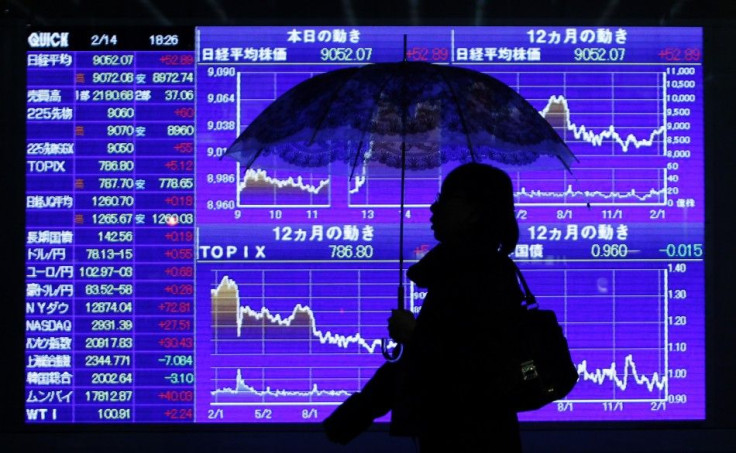Asian Markets Fall On Greek Political Standstill

Asian markets fell Tuesday as concerns over Greece's future in the euro zone increased with the continuing standstill in talks to form a government.
Japan's Nikkei Stock Average lost 0.81 percent, or 73.10 points, to 8900.74. South Korea's KOSPI fell 0.77 percent, or 14.77 points, to 1898.96. While Chinese Shanghai composite index fell 0.25 percent or 5.88 points to 2374.84, Hong Kong's Hang Seng gained 0.73 percent, or 143.92 points, to 19878.96.
Market sentiment continued to be negative as Greece struggled to form a government after voters rejected further austerity measures. The likelihood of another general election to be held in June has increased with the major parties remaining unsuccessful in forming a coalition. The Greek finance ministry has indicated that it might run out of money by the end of June if the country receives no further bailout payments.
The European Commission has already made it clear that Greece will have to adhere to the bailout terms to receive the rescue package and remain within the euro zone. Its banking system is bound to collapse if it does not receive the bailout package, which will eventually result in exiting the euro zone.
Adding to the woe of the debt crisis looming over the euro zone is the bad condition of Spain's banking sector. Potentially large fiscal risks have been created from the Spanish banks' exposure to the ailing property and construction sector.
Spain's economic and financial challenges have been exacerbated by large capital outflows, which intensified in the early months of 2012. If this sudden reversal of international capital flows is not arrested, it could pose a serious threat to the country's economic and financial stability.
In addition to this, there was negative news from Italy as Moody's Investors Service downgraded the long-term debt and deposit ratings for 26 Italian banks Monday. The credit quality of the Italian banks has been badly affected by the economic recession that has hit the country. The austerity measures by the Italian government are seriously hurting the economic growth of the country.
Another factor that dragged down the Asian market sentiment was that the foreign direct investment (FDI) inflows into China fell in April, compared to last year as investors, who are concerned about the renewed debt crisis in the euro zone, cut down on spending. According to data released by China's Commerce Ministry Tuesday, the country drew in $8.4 billion in FDI in April, which is 0.74 percent lower than in the previous year.
© Copyright IBTimes 2024. All rights reserved.




















